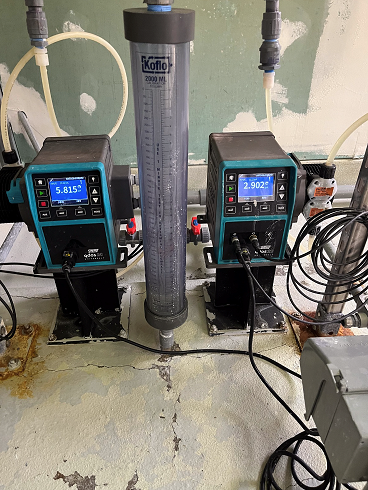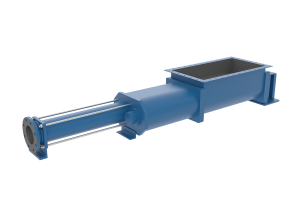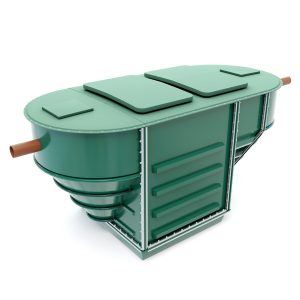Replacing Diaphragm Pumps with Peristaltic Chemical Metering Pumps Helps Arizona City Improve Reliability

Image source: Watson-Marlow Fluid Technology Solutions
Prior to purchasing the Qdos 20 pumps, El Mirage had used a variety of diaphragm pumps, with minimal success. The pumps experienced frequent breakdowns and inconsistent feeds and were deemed unsafe to work on. They required the City to maintain a large spare parts inventory, including a $20,000 chlorine parts budget.
Delivering constant flow rates, Qdos peristaltic chemical metering pumps give the City a unique advantage over diaphragm metering pumps. Qdos pumps also offer long maintenance intervals – reducing the impact of process downtime and lowering the overall cost of ownership.
The Qdos 20 pumps offer simple drop-in installation, which eliminates ancillary equipment. Pump maintenance is reduced with the single, no-tools, component replacement feature. The pumps require no backpressure valves, pulsation dampener, degassing valves, foot valves, strainers or float switches, making the cost of ownership less than that of a diaphragm pump. The Qdos range of pumps is designed for applications up to 158 USGPH in a variety of materials for compatibility at up to 100 PSI. Qdos pumps are ideal for most chemistries, especially those that are viscous, abrasive or off-gas. Qdos can handle gaseous fluids such as sodium hypochlorite, as well as dosing viscous polymers as part of wastewater treatment.
Since switching to 10 Qdos 20 pumps at nine remote well sites, the City has experienced no pump or pumphead failures. The pumps are four to five years old and have provided long service life in a variety of climates, even in the Arizona desert. No maintenance has been required other than changing the pumphead once a year. The repeatable metering and dosing throughout the pumphead life has completely eliminated overdosing issues experienced with the prior diaphragm pumps.
Scott Ketchmark, Utilities Superintendent, notes that the City set a distribution chlorine target residual at 1.0 parts per million (ppm) in 2019. The residual annual average over four years (480 samples per year for a total of 1,920 tests) has met the 1.0 ppm target exactly. “This has eliminated nearly all resident chlorine, smell, or taste complaints.” He adds, “We have been able to reduce the amount of sodium hypochlorite purchases each year because of higher accuracy metering, which has also reduced the distribution system flushing requirement.” In addition, the chlorine pump parts cost plummeted from $20,000 a year to less than $3,000 per year, with no change in flow over time.
At the El Mirage Wastewater Reclamation Facility (WRF), domestic and commercial wastewater flows by gravity or is pumped to the WRF from two lift stations throughout the system. After several treatment processes, polished filter effluent is discharged into a clear well, which provides 1.5 additional hours of contact time needed for disinfection. A sodium hypochlorite solution is injected into the filter effluent. During the disinfection process, the treated wastewater flows by gravity through chlorine contact piping and then into the reuse pump station, which is the final step in the treatment process.
Two Qdos 20 units are being used in this disinfection step. Since switching to the Watson-Marlow pumps, operators have experienced no pump or pumphead failures. They find the reliability to be a huge plus, with no maintenance required other than switching out the pumphead.
Another Qdos 20 pump is used for the WRF’s activated sludge dewatering process. The Qdos 20 pump provides a low shear effect on the coagulant polymer. In concentrated form the polymer is like a coiled spring, if uncoiled too much (high shear), the polymer becomes fragile and can break under high shear conditions. High-shear conditions can impact the efficiency of the process, ultimately costing more money.
Similar to pumps at the well sites, the repeatable metering and dosing throughout the pumphead life eliminated chemical overdosing.







